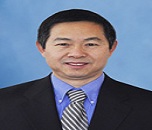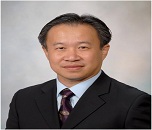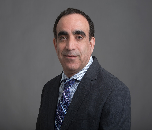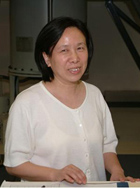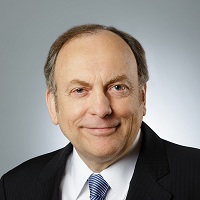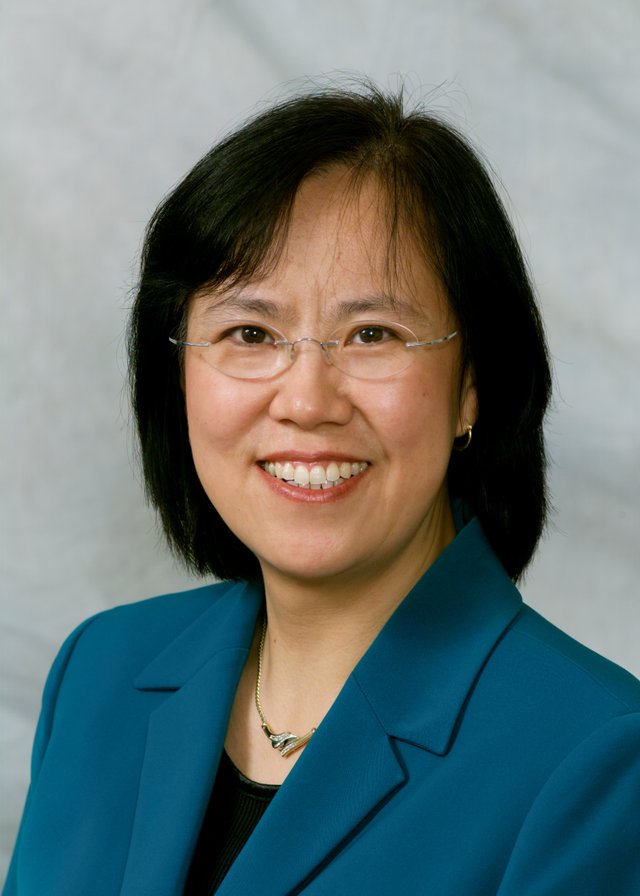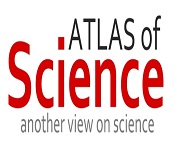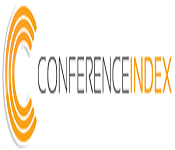Theme: The Scientific Innovations in the field of Cancer Therapy and Cell Signaling
Cell Signaling 2018
International Conference on Cell Signaling and Cancer Therapy is bustling to be held at Philadelphia, USA during September 19-20, 2018 hosted by Conferences Series. Through the theme "The Scientific Innovations in the field of Cancer Therapy and Cell Signaling", conference will explore the advances in Cell Signaling Technologies Medical Approaches, Oncology, Translational Oncology, Computational Technologies, etc. This conference brings a novel and International mixture of giant and medium cancer therapy and cell signaling analysis, leading universities and cancer analysis establishments creating the conference an excellent platform to share expertise, foster collaborations across trade and world, and assess rising technologies across the world.
Conference Series LLC Ltd Organizes 1000+ Global Events every year across USA, Europe & Asia with support from 1000 more scientific societies and Publishes 700+ Open access journals which contains over 50000 eminent personalities, reputed scientists as editorial board members. To know more about the conference series LLC Ltd visit: http://conferenceseries.com/.
Cell Signaling and Cancer Therapy is an extensive field in modern medical practice and diagnosis. The global digital cancer market, is expected to garner $111.9 billion by 2020, registering a CAGR of 7.1% during the forecast period 2014 to 2020.Chemotherapy would continue to be the highest revenue generating segment through 2020. The global Cancer therapy market is estimated to grow at 17.6% CAGR to reach $52.2billion by 2021. Breast cancer therapy is the largest market expected to reach $30.8 billion by 2016 at an estimated CAGR of 15%.
Who Should Attend?
Practicing cancer biologists in training and other healthcare professionals interested in the latest advances and techniques in the field. Another segment of target audience is Pharmaceutical researchers, Clinical organizations, Educational institutes. Computational Bioinformatacian, Translational Oncologists, Surgical Cancer Researchers etc.,
The First International Conference and Exhibition on Cell Signaling and Cancer Therapy will exhibit the products and services from commercial and non-commercial organizations like Clinical Lab Equipment manufacturers, Cell Diagnostics laboratories, Clinical Trial Sites, Business delegates and Equipment Manufacturers.
Why to attend Cell Signaling and Cancer Therapy 2018?
- Best platform to develop new partnership & collaborations.
- Sharpen your skills and become a expert to their particular field.
- Best location to speed up your route into every territory in the World.
- Gain new ideas, tools & tactics.
- Conferences are great way to refuel yourself and chances to shine.
- 90% our conference attendees are the Key contact in their labs purchasing decisions.
- Our exhibitor booths were visited 4-5 times by 80% of the attendees during the conference.
- Network development with both Academia and Business.
Track 1: Cell Signaling Dynamics
Cell signaling is highly complex system and extremely specific process that governs many important functions in bacterial and human cells. Each signaling process involves multiple steps, and the major research challenge is to perform suitable experiments and modeling not only to study the individual steps, but also to understand how these steps are perfectly coordinated and regulated to produce the end point response.
Biological networks are complex and dynamic systems that enable living cells to sense and respond to changes in their immediate environment. Although the main components of biological networks have been studied in detail, it remains unclear how cells decode, integrate cell signals and make cell decisions. The Cell Signaling Dynamics group combines both mathematical modeling and experimental approaches to unravel the mechanisms of molecular networks by which extrinsic and intrinsic signals control cell proliferation and differentiation at a systems level.
Related Conferences
26th World Cancer Convention November 27-28, 2017 Dubai, UAE; Experts Meet On Cancer Therapy 2018 July 11-12, 2018 Sydney, Australia; Global Summit on Oncology & Cancer March 12-14, 2018 Singapore; 3rd International Conference on Nuclear Medicine & Radiation Therapy March 26-27, 2018 Edinburgh, Scotland; 22nd Global Annual Oncologists Meeting May 24-25, 2018 Osaka, Japan; 9th World Biomarkers Congress December 07-08, 2017 Madrid, Spain; 27th International Conference on Oncology Research & Cancer Stem Cells May 10-12, 2018 Frankfurt, Germany; Global Meeting on Oncology and Radiology April 16-17, 2018 Dubai, UAE; 4th Annual Conference on Gynecologic Oncology July 18-19, 2018 Atlanta, USA;
Track 2: Signaling Pathways
Cell signaling governs basic cellular activities and coordinates cell actions through a complex coordination of responses to cellular microenvironment. The disruption or errors found within this communication chain gives rise to various diseases and cancers. By understanding cell signaling, diseases may be treated more effectively and cures created.
The complex interaction of the activated receptor with other proteins inside the cell before the ultimate physiological effect of the ligand on the cell's behavior is produced is called signal transduction or cell signaling. Numerous cell signaling pathways exist, including Akt, NF-kB, and Notch signaling. Rockland produces antibodies that assist in research for a variety of these pathways.
Related Conferences
World Haematology and Medical Oncology Conference May 28-30, 2018 Osaka, Japan; International Conference on Robotic Oncology October 26-27, 2018 Osaka, Japan; 29th Euro-Global Summit on Cancer Therapy & Radiation Oncology July 23-25, 2018 Rome, Italy; 3rd Oncologist & Diagnostics Conference 2018 September 20-21, 2018 Germany, Berlin; 2nd International Conference on Cancer Biology and Drug Delivery October 03-04, 2018 Los Angeles, California, USA; 4th Annual Conference on Preventive oncology July 18-19, 2018 Atlanta, USA; 28th Euro Congress on Cancer Science & Therapy August 09-10, 2018 Madrid, Spain;
Track 3: Protein Signaling
A large number of therapeutic drugs are directed against proteins or are proteins themselves, and protein-related technologies promise to revolutionize our understanding of the complex wiring of biological systems. Protein signaling is the eukaryotic cell’s most important regulatory mechanism to appropriately respond to internal and external cues. This intracellular signaling response is mediated by numerous site-specific post-translational modifications (PTMs) of proteins, including phosphorylation, ubiquitylation, and acetylation. Such regulatory PTMs are involved in virtually all signaling pathways that orchestrate fundamental cellular processes including cell cycle progression, apoptosis, the DNA damage response, autophagy, and metabolism. This meeting will bring together world leading researchers in the area of protein signaling.
Related Conferences
26th World Cancer Convention November 27-28, 2017 Dubai, UAE; Experts Meet On Cancer Therapy 2018 July 11-12, 2018 Sydney, Australia; Global Summit on Oncology & Cancer March 12-14, 2018 Singapore; 3rd International Conference on Nuclear Medicine & Radiation Therapy March 26-27, 2018 Edinburgh, Scotland; 22nd Global Annual Oncologists Meeting May 24-25, 2018 Osaka, Japan; 9th World Biomarkers Congress December 07-08, 2017 Madrid, Spain; 27th International Conference on Oncology Research & Cancer Stem Cells May 10-12, 2018 Frankfurt, Germany; Global Meeting on Oncology and Radiology April 16-17, 2018 Dubai, UAE;
Track 4: Signaling Diseases
Ample number of diseases is caused by defects in signaling pathways. The nature of these defects and how they are induced varies enormously. Pathogenic organisms and viruses, many of which can interfere with signalling events, can cause some of these defects. There are many diseases that can be traced to deformity in the function of cell signalling pathways. The concept of signalsome remodelling and disease provides a framework for considering how deformity in signalling pathways can result in disease. It is convenient to separate these defects into phenotypic remodelling of the signalsome and genotypic remodelling of the signalsome. Most of the serious diseases in humans, such as hypertension, heart disease, diabetes and many forms of mental illness, seem to arise from subtle phenotypic modifications of signalling pathways. Such phenotypic remodelling amend the behaviour of cells so that their normal functions are subverted, leading to disease. Since it has proved difficult to clearly establish this relationship between signalsome remodelling and disease, there has been relatively little progress in designing effective treatments.
Related Conferences
4th Annual Conference on Gynecologic Oncology July 18-19, 2018 Atlanta, USA; World Haematology and Medical Oncology Conference May 28-30, 2018 Osaka, Japan; International Conference on Robotic Oncology October 26-27, 2018 Osaka, Japan; 29th Euro-Global Summit on Cancer Therapy & Radiation Oncology July 23-25, 2018 Rome, Italy; 3rd Oncologist & Diagnostics Conference 2018 September 20-21, 2018 Germany, Berlin; 2nd International Conference on Cancer Biology and Drug Delivery October 03-04, 2018 Los Angeles, California, USA; 4th Annual Conference on Preventive oncology July 18-19, 2018 Atlanta, USA; 28th Euro Congress on Cancer Science & Therapy August 09-10, 2018 Madrid, Spain
Track 5: Cell Adhesion and Cell Communication
Adhesion of cells is a best factor of the architecture of many tissues. Cell adhesion is the process cells interact and attach to a surface, substrate or another cell, mediated by interactions between molecules of the cell surface. Cell adhesion happens from the action of transmembrane glycoproteins, and these comprise selectins, integrins, syndecans, and cadherins. Cellular adhesion is essential in maintaining multicellular structure. Cell adhesion includes like Genomic and Functional Screening. Cell adhesion is also essential for the pathogenesis of infectious organisms. Viruses also have adhesion molecules enforced for viral binding to host cells like in influenza virus.
Cell communication is the depth of biophysics and biochemistry to identify different types of communication methods between living cells. Some of the methods include cell signaling among remains. Both multicellular and unicellular organisms densely build on cell-cell communication. Intercellular introduces to the communication between cells. Membrane vesicle trafficking has a crucial role in intercellular communications in humans and animals, like in synaptic transmission, hormone secretion via vesicular exocytosis.
Related Conferences
3rd International Conference on Nuclear Medicine & Radiation Therapy March 26-27, 2018 Edinburgh, Scotland; 22nd Global Annual Oncologists Meeting May 24-25, 2018 Osaka, Japan; 9th World Biomarkers Congress December 07-08, 2017 Madrid, Spain; 27th International Conference on Oncology Research & Cancer Stem Cells May 10-12, 2018 Frankfurt, Germany; Global Meeting on Oncology and Radiology April 16-17, 2018 Dubai, UAE; 4th Annual Conference on Gynecologic Oncology July 18-19, 2018 Atlanta, USA; World Haematology and Medical Oncology Conference May 28-30, 2018 Osaka, Japan; International Conference on Robotic Oncology October 26-27, 2018 Osaka, Japan; 29th Euro-Global Summit on Cancer Therapy & Radiation Oncology July 23-25, 2018 Rome, Italy;
Track 6: Modern Approach in Cell Signaling
The aim of research in signal transduction is to identify the functions of various signaling pathways in physiological and pathological states. Traditional techniques using biochemical, genetic or cell biological approaches have made crucial grants to our understanding of cellular signaling. Despite, the single-gene approach does not take into account the full complexity of cell signaling. With the connections of omics techniques, huge progress has been made in understanding signaling networks.
The use of schemes for global and quantitative analysis of cells is providing new systems-level insights into signal transduction processes. Recent studies reveal important information about the rates of signal transmission and propagation, help to settle down some general regulatory characteristics of multi-tiered signaling cascades, and illuminate the combinatorial nature of signaling specificity in cell differentiation. Cellular kinase signal transduction pathways are muddled in the regulation of many important cellular processes such as cell survival, differentiation and apoptosis.
Related Conferences
World Haematology and Medical Oncology Conference May 28-30, 2018 Osaka, Japan; International Conference on Robotic Oncology October 26-27, 2018 Osaka, Japan; 29th Euro-Global Summit on Cancer Therapy & Radiation Oncology July 23-25, 2018 Rome, Italy; 3rd Oncologist & Diagnostics Conference 2018 September 20-21, 2018 Germany, Berlin; 2nd International Conference on Cancer Biology and Drug Delivery October 03-04, 2018 Los Angeles, California, USA; 4th Annual Conference on Preventive oncology July 18-19, 2018 Atlanta, USA; 28th Euro Congress on Cancer Science & Therapy August 09-10, 2018 Madrid, Spain
Track 7: Cancer Therapy
There are many treatments for cancer. The mission of any treatment is to expel cancerous cells to try to ensure cancer doesn’t return. It can be challenging because even if just one cancerous cells remains after treatment. A lot of experimental cancer treatments are also under development. Sometimes this can be proficient by surgery, radiotherapy, chemotherapy but the susceptibility of cancers to infect adjacent tissue or to spread to distant sites by microscopic metastasis usually limits its effectiveness. Biopsy is another option for cancer treatment.
Angiogenesis inhibitors were once thought to have potential as a silver bullet treatment applicable to many types of cancer, surgical procedures for cancer include mastectomy for breast cancer, prostatectomy for prostate cancer, and lung cancer surgery for non-small cell lung cancer. New approaches to surgery or radiation therapy, new combinations of treatments, or new methods are gene therapy. Palliative therapies should be used to control the pain. Many clinical trials have been conducted for cancer therapy.
Related Conferences
9th World Biomarkers Congress December 07-08, 2017 Madrid, Spain; 27th International Conference on Oncology Research & Cancer Stem Cells May 10-12, 2018 Frankfurt, Germany; Global Meeting on Oncology and Radiology April 16-17, 2018 Dubai, UAE; 4th Annual Conference on Gynecologic Oncology July 18-19, 2018 Atlanta, USA; World Haematology and Medical Oncology Conference May 28-30, 2018 Osaka, Japan; International Conference on Robotic Oncology October 26-27, 2018 Osaka, Japan; 29th Euro-Global Summit on Cancer Therapy & Radiation Oncology July 23-25, 2018 Rome, Italy; 3rd Oncologist & Diagnostics Conference 2018 September 20-21, 2018 Germany, Berlin;
Track 8: Radiation Therapy & Chemotherapy
A lot of treatment preferences are available for patients suffering from cancer. Depending on the type of cancer, the stage of the cancer when the patient is diagnosed, and the patient’s overall health, some treatment options may make more sense, or may be more effective, than others.
Chemotherapy indicates to a type of cancer treatment in which a patient is given drugs that are designed to kill cancer cells. One or more drugs, called cytotoxic anti-neoplastic drugs, may be given at a time, either intravenously or orally. Chemotherapy works by targeting cells within the body that divide swiftly, which is one of the main characteristics of cancer cells. Some normal cells also divide rapidly, such as cells in hair follicles and the digestive tract. These cells are also flawed by chemotherapy, which accounts for copious of the side effects patients experience when undergoing treatment.
Radiation treatment refers to a type of cancer treatment in which high-doses of radiation are delivered to cancerous tumors in the body. The beams of radiation pass through the skin and other materials to target a definite location where a tumor is located. Radiation damages the DNA of the cancer cells, causing them to die. The mechanism of receiving radiation treatment is painless, and side effects are often limited to the areas of the body around the tumors that receive the treatment. Other common side effects include fatigue and skin irritation.
Related Conferences
Global Meeting on Oncology and Radiology April 16-17, 2018 Dubai, UAE; 4th Annual Conference on Gynecologic Oncology July 18-19, 2018 Atlanta, USA; World Haematology and Medical Oncology Conference May 28-30, 2018 Osaka, Japan; International Conference on Robotic Oncology October 26-27, 2018 Osaka, Japan; 29th Euro-Global Summit on Cancer Therapy & Radiation Oncology July 23-25, 2018 Rome, Italy; 3rd Oncologist & Diagnostics Conference 2018 September 20-21, 2018 Germany, Berlin; 2nd International Conference on Cancer Biology and Drug Delivery October 03-04, 2018 Los Angeles, California, USA; 4th Annual Conference on Preventive oncology July 18-19, 2018 Atlanta, USA;
Track 9: Immunotherapy & Targeted Therapy
Immunotherapy also called biologic therapy, is a type of cancer treatment that expansions the body's natural defenses to fight the cancer. It uses substances made by the body or in a laboratory to improve or restore immune system function.
Targeted therapy is a cancer treatment that uses drugs. It is different from traditional chemotherapy. The drugs known as targeted therapy help stop cancer from developing and expanding. They work by targeting specific genes or proteins. These genes and proteins are found in cancer cells or in cells related to cancer growth, like blood vessel cells.
Related Conferences
26th World Cancer Convention November 27-28, 2017 Dubai, UAE; Experts Meet On Cancer Therapy 2018 July 11-12, 2018 Sydney, Australia; Global Summit on Oncology & Cancer March 12-14, 2018 Singapore; 3rd International Conference on Nuclear Medicine & Radiation Therapy March 26-27, 2018 Edinburgh, Scotland; 22nd Global Annual Oncologists Meeting May 24-25, 2018 Osaka, Japan; 9th World Biomarkers Congress December 07-08, 2017 Madrid, Spain; 27th International Conference on Oncology Research & Cancer Stem Cells May 10-12, 2018 Frankfurt, Germany; Global Meeting on Oncology and Radiology April 16-17, 2018 Dubai, UAE; 4th Annual Conference on Gynecologic Oncology July 18-19, 2018 Atlanta, USA;
Track 10: Cancer Stem Cell Therapy
The cancer stem cell theory, cancers can be originated by cancer stem cells. This makes cancer stem cells prime targets for therapeutic intervention. Eradicating cancer stem cells by efficient targeting agents may have the potential to cure cancer. We summarize recent breakthroughs that have amended our understanding of cancer stem cells, and we discuss the therapeutic strategy of targeting cancer stem cells, a promising future direction for cancer stem cell research.
Related Conferences
World Haematology and Medical Oncology Conference May 28-30, 2018 Osaka, Japan; International Conference on Robotic Oncology October 26-27, 2018 Osaka, Japan; 29th Euro-Global Summit on Cancer Therapy & Radiation Oncology July 23-25, 2018 Rome, Italy; 3rd Oncologist & Diagnostics Conference 2018 September 20-21, 2018 Germany, Berlin; 2nd International Conference on Cancer Biology and Drug Delivery October 03-04, 2018 Los Angeles, California, USA; 4th Annual Conference on Preventive oncology July 18-19, 2018 Atlanta, USA; 28th Euro Congress on Cancer Science & Therapy August 09-10, 2018 Madrid, Spain
Track 11: Emerging Therapies in Cancer Treatment
The analysis of cancer has endured evolutionary changes as understanding of the underlying biological processes has risen. Tumor removal surgeries have been documented in ancient Egypt, hormone therapy and radiation therapy were advanced in the late 19th Century. Chemotherapy, immunotherapy and newer targeted therapies are products of the 20th century. External radiation and radiation implants under the radiation therapy. Common therapies include the biologic therapies, targeted therapies, complementary and alternative therapy also.
From last few years the availability of a wide variety of different therapeutic agents and the identification of sufficient combinations of existing ones that have transformed the way we approach and treat pancreatic cancer. It will feature an investigation of emerging targets for cancer, including intracellular targets, cancer stem cell and checkpoint inhibition. New ways of engaging the immune system will be break out, along with new approaches on how to engineer the next generation of CAR-T cells to be more effective. The field is exploding with opportunities to evolve the next generation therapies against cancer that promise greater capability and less toxicity.
Related Conferences
9th World Biomarkers Congress December 07-08, 2017 Madrid, Spain; 27th International Conference on Oncology Research & Cancer Stem Cells May 10-12, 2018 Frankfurt, Germany; Global Meeting on Oncology and Radiology April 16-17, 2018 Dubai, UAE; 4th Annual Conference on Gynecologic Oncology July 18-19, 2018 Atlanta, USA; World Haematology and Medical Oncology Conference May 28-30, 2018 Osaka, Japan; International Conference on Robotic Oncology October 26-27, 2018 Osaka, Japan; 29th Euro-Global Summit on Cancer Therapy & Radiation Oncology July 23-25, 2018 Rome, Italy; 3rd Oncologist & Diagnostics Conference 2018 September 20-21, 2018 Germany, Berlin;
Track 12: System biology embedded in Cancer Therapy
The transformation of normal cells into cancer cells and preservance of the malignant state and phenotypes are associated with genetic and epigenetic deregulations, altered cellular signaling responses and aberrant interactions with the microenvironment. These alterations are constantly evolving as tumor cells face changing selective pressures induced by the cells themselves, the microenvironment and drug treatments. Tumors are also complex ecosystems where distant, sometime heterogeneous, subclonal tumor populations and a variety of nontumor cells coexist in a constantly evolving manner. The interactions between molecules and between cells that arise as a result of these alterations and ecosystems are even more complex. The cancer research community is progessively embracing this complexity and adopting a combination of systems biology methods and integrated analyses to understand and predictively model the activity of cancer cells. Systems biology approaches are helping to understand the mechanisms of tumor progression and design more effective cancer therapies.
Related Conferences
Global Meeting on Oncology and Radiology April 16-17, 2018 Dubai, UAE; 4th Annual Conference on Gynecologic Oncology July 18-19, 2018 Atlanta, USA; World Haematology and Medical Oncology Conference May 28-30, 2018 Osaka, Japan; International Conference on Robotic Oncology October 26-27, 2018 Osaka, Japan; 29th Euro-Global Summit on Cancer Therapy & Radiation Oncology July 23-25, 2018 Rome, Italy; 3rd Oncologist & Diagnostics Conference 2018 September 20-21, 2018 Germany, Berlin; 2nd International Conference on Cancer Biology and Drug Delivery October 03-04, 2018 Los Angeles, California, USA; 4th Annual Conference on Preventive oncology July 18-19, 2018 Atlanta, USA; 28th Euro Congress on Cancer Science & Therapy August 09-10, 2018 Madrid, Spain
Track 13: Cancer Pharmacology
Cancer pharmacology plays an important role in drug development. In both the laboratory and the clinic, cancer pharmacology has had to adapt to the changing face of drug development by establishing experimental models and target orientated approaches.
Cancer Pharmacology directs on developing experimental approaches to the clinical treatment of cancer through research that bridges the fields of molecular carcinogenesis, biochemical pharmacology, radiation biology, and clinical pharmacology.
Cancer pharmacology is the study of the molecular and cellular mechanisms of cancer cells and the identification of novel therapeutic targets and treatment strategies. An emphasis on difficult to treat breast cancer subtypes, which includes research on cancer stem cells, is leading to discoveries of new disease mechanisms and drug targets.
Related Conferences
26th World Cancer Convention November 27-28, 2017 Dubai, UAE; Experts Meet On Cancer Therapy 2018 July 11-12, 2018 Sydney, Australia; Global Summit on Oncology & Cancer March 12-14, 2018 Singapore; 3rd International Conference on Nuclear Medicine & Radiation Therapy March 26-27, 2018 Edinburgh, Scotland; 22nd Global Annual Oncologists Meeting May 24-25, 2018 Osaka, Japan; 9th World Biomarkers Congress December 07-08, 2017 Madrid, Spain; 27th International Conference on Oncology Research & Cancer Stem Cells May 10-12, 2018 Frankfurt, Germany; Global Meeting on Oncology and Radiology April 16-17, 2018 Dubai, UAE; 4th Annual Conference on Gynecologic Oncology July 18-19, 2018 Atlanta, USA;
Track 14: Membrane proteins
Membrane proteins are proteins that interact with, or are part of, biological membranes. They include integral membrane proteins that are permanently anchored or part of the membrane and peripheral membrane proteins that are only temporarily attached to the lipid bilayer or to other integral proteins. The integral membrane proteins are classified as transmembrane proteins that span across the membrane and integral monotopic proteins that are attached to only one side of the membrane. Membrane proteins are a common type of proteins along with soluble globular proteins, fibrous proteins, and disordered proteins. They are targets of over 50% of all modern medicinal drugs. It is estimated that 20–30% of all genes in most genomes encode membrane proteins.
Related conferences
26th World Cancer Convention November 27-28, 2017 Dubai, UAE; Experts Meet On Cancer Therapy 2018 July 11-12, 2018 Sydney, Australia; Global Summit on Oncology & Cancer March 12-14, 2018 Singapore; 3rd International Conference on Nuclear Medicine & Radiation Therapy March 26-27, 2018 Edinburgh, Scotland; 22nd Global Annual Oncologists Meeting May 24-25, 2018 Osaka, Japan; 9th World Biomarkers Congress December 07-08, 2017 Madrid, Spain; 27th International Conference on Oncology Research & Cancer Stem Cells May 10-12, 2018 Frankfurt, Germany; Global Meeting on Oncology and Radiology April 16-17, 2018 Dubai, UAE; 4th Annual Conference on Gynecologic Oncology July 18-19, 2018 Atlanta, USA;
Track 15: Pediatric Oncology
Childhood cancer also known as pediatric cancer is cancer in a child. In the United States, an arbitrarily adopted standard of the ages used are 0–14 years inclusive, that is, up to 14 years 11.9 months of age. However, the definition of childhood cancer sometimes includes adolescents between 15–19 years old. Pediatric oncology is the branch of medicine concerned with the diagnosis and treatment of cancer in children. Cancers including leukemias, lymphomas, brain tumors, bone tumors, and solid tumors.
Related conferences
lobal Meeting on Oncology and Radiology April 16-17, 2018 Dubai, UAE; 4th Annual Conference on Gynecologic Oncology July 18-19, 2018 Atlanta, USA; World Haematology and Medical Oncology Conference May 28-30, 2018 Osaka, Japan; International Conference on Robotic Oncology October 26-27, 2018 Osaka, Japan; 29th Euro-Global Summit on Cancer Therapy & Radiation Oncology July 23-25, 2018 Rome, Italy; 3rd Oncologist & Diagnostics Conference 2018 September 20-21, 2018 Germany, Berlin; 2nd International Conference on Cancer Biology and Drug Delivery October 03-04, 2018 Los Angeles, California, USA; 4th Annual Conference on Preventive oncology July 18-19, 2018 Atlanta, USA; 28th Euro Congress on Cancer Science & Therapy August 09-10, 2018 Madrid, Spain.
Cancer Gene Therapy Market was valued at $289 million in 2016, and is estimated to reach $2,082 million by 2023, registering a CAGR of 32.4% from 2017 to 2023. With the advancement in technology, the gene therapy market has transformed during the recent few years. Cancer gene therapy is a technique used for the treatment of cancer where therapeutic DNA is being introduced into the gene of the patient with cancer.
Due to the high success rate during the preclinical and clinical trial, cancer gene therapy is gaining popularity. There are many techniques used for cancer gene therapy, for example, a procedure where the mutated gene is being replaced with a healthy gene or inactivation of gene whose function is abnormal. Recently, a new technique has been developed, where new genes are introduced into the body to help fight against cancer cells.
The global cancer gene therapy market is segmented based on therapy, end user, and geography. Based on therapy, it is categorized into gene induced immunotherapy, oncolytic virotherapy, and gene transfer. Gene induced immunotherapy is further segmented into delivery of cytokines gene and delivery of tumor antigen gene.
Oncolytic virotherapy is further categorized into adenovirus, lentivirus, retro virus, adeno associated virus, herpes simplex virus, alpha virus, vaccinia virus, simian virus, and others. Gene transfer is further classified into naked plasmid vector, electroporation, sonoportion, magnetofection, and gene gun. Based on geography, it is analyzed across North America, Europe, Asia-Pacific, and LAMEA.
Drivers, Restraints, and Opportunities
The impact of the driving factors is expected to overcome the effect of restraints. Moreover, the technological advancements leading to higher adoption rate and untapped markets in developing economies are expected to provide new avenues for the growth of cancer gene therapy market in the near future
Drivers and Restraints
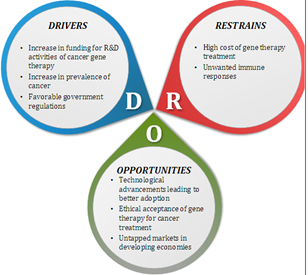
Cancer Diagnostics Market Analysis
The global cancer diagnostics market size was valued at USD 124.0 billion in 2016 and is expected to grow at a CAGR of 7.2% over the forecast period. Growing prevalence of oncologic cases, constant technological advancements in diagnostics, and increasing demand for effective screening tests are some of the prime factors spurring the demand for screening tools across the world. In addition, rising awareness and supportive government initiatives are some additional factors that are anticipated to boost the growth of the sector during the forecast period.
Cancer is one of the leading causes of deaths across the world, which is attributed to the escalating prevalence of the disease. Therefore, healthcare professionals are focusing on the development of effective diagnostic and treatment solutions to check the prevalence level. Early detection increases the success rate of treatment regimens. As a result, healthcare agencies and market players through various awareness programs are promoting routine checkups.
China cancer diagnostics market, by screening type, 2014 - 2025 (USD Billion)
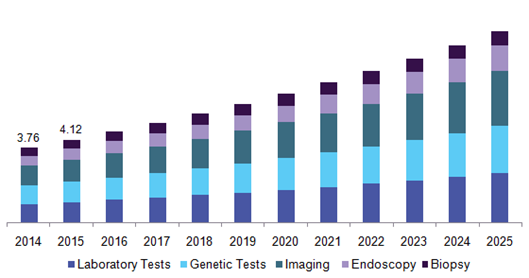
Cell Signaling Market Insights
Cell signaling is a complex process of communication, which governs basic activities of cells and coordinates cell actions, it is a major field in modern medical practice and diagnosis. Factors such as growing applicability of cell signaling in biotechnology, advancements in cell-based research technology, growing biopharmaceutical industries and wide availability advance cell signaling products are driving the growth of cell signaling market globally.
Market Competition Assessment:
The cell signaling market is observed to be highly competitive and comprises large number of players. However, the market is currently dominated by few players such as Abcam plc., BD Biosciences, Beckman Coulter, Bio-Rad Laboratories, Inc., BioVision, Inc., BPS Bioscience, Inc., Cell Biolabs, Inc., Cell Signaling Technology, Inc., Cisbio Bioassays, Full Moon BioSystems, Inc., Merck KGaA, Miltenyi Biotec, PerkinElmer Inc., Promega Corporation, Qiagen N.V., Rockland Immunochemicals, Sino Biological, Inc., Thermo Fisher Scientific, Inc. and other.
Cancer Gene Therapy and Cell Signaling Market Key Segments:
By Therapy
-
Gene Induced Immunotherapy
- Delivery of Cytokines Gene
- Delivery of Tumor Antigen Gene
- Oncolytic Virotherapy
- Adenovirus
- Lentivirus
- Retro Virus
- Adeno Associated Virus
- Herpes Simplex Virus
- Alpha Virus
- Vaccinia Virus
- Simian Virus
- Others
-
Gene Transfer
- Naked/Plasmid Vectors
- Electroporation
- Sonoportion
- Magnetofection
- Gene Gun
By End User
- Hospitals
- Diagnostics Centers
- Research Institutes
By Region
-
North America
- U.S.
- Canada
- Mexico
LAMEA
- Brazil
- Republic of South Africa
- Saudi Arabia
- Rest of LAMEA
Top universities/ College related to Cancer in USA:
- Massachusetts Institute of Technology
- Cornell University
- Georgia University of Technology
- Emory University
- Stanford University
- Northwestern University
- University of Miami
- University of California at Los Angeles
- Johns Hopkins University
- Texas A & M University
- Princeton University
- California Institute of Technology – Caltech
- Yale University
Top universities/ College related to Cancer in Philadelphia:
- Abramson Family Cancer Research Institute
- Wistar Institute: Conejo-Garcia Jose R MD
- Fox Chase Cancer Center
- Cancer Treatment Centers of America at Eastern Regional Medical Center
- Thomas Jefferson University
- Abramson Cancer Center Hospital University of Pennsylvania (HUP)
- Kimmel Cancer Center
- University of Pennsylvania Hematology/Oncology Fellowship
- Fels Institute
- Abramson Cancer Center: Feldman Arthur M MD
Conference Highlights:
Track 1: Cell Signaling Dynamics
Track 2: Signaling Pathways
Track 3: Protein Signaling
Track 4: Signaling Diseases
Track 5: Cell Adhesion and Cell Communication
Track 6: Modern Approach in Cell Signaling
Track 7: Cancer Therapy
Track 8: Radiation Therapy & Chemotherapy
Track 9: Immunotherapy & Targeted Therapy
Track 10: Cancer Stem Cell Therapy
Track 11: Emerging Therapies in Cancer Treatment
Track 12: System biology embedded in Cancer Therapy
Track 13: Cancer Pharmacology
The International Conference on Annual Summit on Cell Signaling and Cancer Therapy 2017 was held at Chicago during September 27-28, 2017.
The conference was focused on Cancer Biology & Cell Signaling studies with the theme ‘To Frame an Admiring Portal for Pioneering Cancer Therapy and Cell Signaling Findings”. The meeting engrossed a vicinity of comprehensive discussions on novel subjects like Cancer and Cell Biology, Organ Specific Cancer, Oncogenomics, Cancer Imaging, Cancer Biomarkers, Cancer Pharmacology, Hematology-Oncology, Epithelial Cancers, Renal Cell Cancers, Gynecologic Oncology, Cancer Stem Cells, Molecular Cancer, DNA Repair and Cancer, Immunotherapy, Cancer Therapy, Cell Biology, Cell Signaling, Cell Metabolism, Cancer Treatments and Vaccines, Cancer Screening, Chemotherapy, Cancer Epidemiology, Global Market for Cancer Treatments.
The conference was embarked with an opening ceremony followed by Keynote sessions and followed by series of lectures delivered by both Honorable Guests and members of the Keynote forum. The adepts who promulgated the theme with their exquisite talk were:
- Diana Anderson, University of Bradford, UK
- Xiaolian Gao, University of Houston, USA
- Jianhua Luo, University of Pittsburgh School of Medicine, USA
- George G Chen, The Chinese University of Hong Kong, China
- Li Zhang, The University of Texas at Dallas, USA
- Magnus S. Magnusson, University of Iceland, Iceland
- Sasha Shafikhani, Rush University Medical Center, USA
Conference Series LLC Ltd offers its heartfelt appreciation to Organizing Committee Members, dexterous of field, various outside experts, company representatives and is obliged to other eminent personalities who interlaced with Conference Series LLC Ltd and supported the conference in every aspect, without which the conference would not have been possible.
Your rejoinder is our inspiration; keeping this motto in mind and being witnessed the triumph of Cell Signaling 2017, Conference Series LLC Ltd would like to announce the commencement of the “2nd International Conference on Annual summit on Cell Signaling and Cancer Therapy” to be held during September 19-20, 2018 Philadelphia, USA. We welcome all the eminent researchers, students and delegate participants to take part in this upcoming conference to witness invaluable scientific discussions and contribute to the future innovations in the field of Cancer Biology & Cell Signaling.
For More details: https://cellsignaling.conferenceseries.com/
Let us meet again @ Cell Signaling 2018
Conference Highlights
- Cell Signaling Dynamics
- Signaling Pathways
- Protein Signaling
- Signaling Diseases
- Cell Adhesion and Cell Communication
- Modern Approach in Cell Signaling
- Cancer Therapy
- Radiation Therapy & Chemotherapy
- Immunotherapy & Targeted Therapy
- Cancer Stem Cell Therapy
- Emerging Therapies in Cancer Treatment
- System biology embedded in Cancer Therapy
- Cancer Pharmacology
- Membrane proteins
- Pediatric Oncology
To share your views and research, please click here to register for the Conference.
To Collaborate Scientific Professionals around the World
| Conference Date | September 19 - 20, 2018 | ||
| Sponsors & Exhibitors |
|
||
| Speaker Opportunity Closed | Day 1 | Day 2 | |
| Poster Opportunity Closed | Click Here to View | ||
Useful Links
Special Issues
All accepted abstracts will be published in respective Our International Journals.
Abstracts will be provided with Digital Object Identifier by









